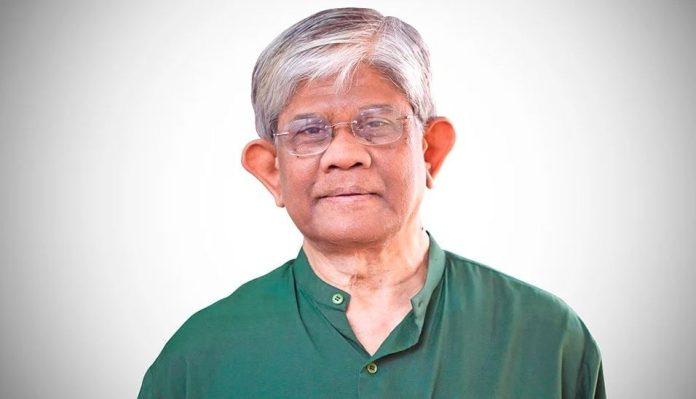Bangladesh’s economy is currently in a comfortable position as most of the economic indicators are positive, according to Finance Adviser Dr. Salehuddin Ahmed.
“From an economic standpoint, I am at ease. That’s why we are fairly confident,” he told reporters on Tuesday, following a meeting of the Advisory Council Committee on Government Purchase held at the Secretariat.
Responding to a question on whether the economy is under pressure, Dr. Ahmed reiterated that he was personally satisfied with the current economic indicators. “I can’t speak for everything, but economically, I feel we are in a relatively good position,” he said.
When asked about reports suggesting Bangladesh’s economic condition is worse than other South Asian countries like Sri Lanka, Pakistan, or Nepal, he responded, “We brought inflation down from 11–14% to 8%. If it were at 7% and dropped to 4%, everyone would have celebrated. The size of the base matters.”
Addressing concerns over recent US tariffs, the adviser said, “The tariff is already effective. The ceiling imposed is not the main issue. We’ve already demonstrated $4 billion in exports overall.”
On questions about a new pay scale for public servants, Dr. Ahmed said, “That will be considered later. I’ll address it in due time.”
Regarding the government’s decision to spend Tk 4.2 billion on body cameras for election duty, Dr. Ahmed declined to comment directly, stating, “You will understand that later.”
In response to World Bank findings that poverty has risen in Bangladesh, he said, “I won’t get into theory now. To claim poverty has increased or decreased requires a detailed explanation. I know how poverty is measured—they have a base and a client. If you call 5,000 people for phone interviews and say poverty has risen, I know how reliable that is.”
He added, “Someone once told me, ‘Sir, write a paper and I’ll get a firm to give you 20,000 responses by tomorrow.’ It’s about reliability. I do not deny that we face challenges—but to say poverty has increased by a certain percentage… that’s questionable.”
Quoting Nobel laureate Amartya Sen, he remarked, “Sen once said you don’t always need to measure extreme poverty—you can recognize it just by looking at the person, their face, their demeanor.”
Asked about the government’s reported $2.2 billion purchase of 20 fighter ships from China, the adviser declined to comment. When pressed further, he replied, “Even if I know, do I have to say everything?”
He added that decisions regarding military procurement fall outside his purview. “That’s their matter. They assess what is needed. I’m only involved in matters related to financing,” he said.
Regarding whether financial clearance was given for the purchase, he declined to comment.
Asked about his upcoming trip to Washington, Dr. Ahmed said there is still money in the IMF pipeline, and that agreements with the World Bank, ADB, and other development partners are ongoing. “Two agreements will be signed with the World Bank. Otherwise, we’re following up on existing commitments. This time it’s not about new negotiations,” he said.
He noted that the current government will not engage in major decisions ahead of the election. “Our position is that larger decisions will be made by the next elected government,” he added.

